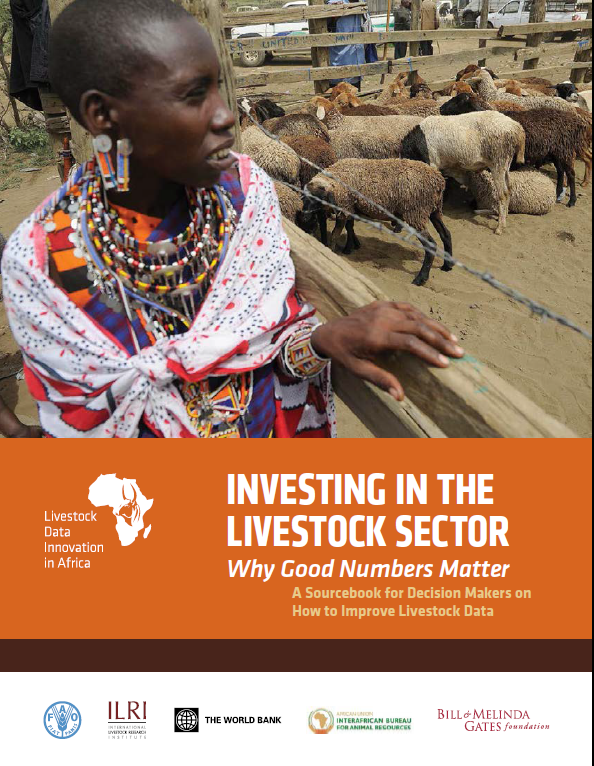Investing in the Livestock Sector - Why Good Numbers Matter
Citation
In 2014, Livestock in Africa: Improving Data for Better Policies1, summarised activities and outputs in a sourcebook. This provided guidance for decision makers responsible for collection and analysis of livestock data on how to systematically address livestock-data related issues; within the context of national agricultural statistical systems.
It was recognised that livestock data are generally considered inadequate for effective decision making. There were existing datasets for African countries, with associated livestock-related indicators existing at country levels. Yet, these were rare and inconsistent, with quality called into question.
The source book provides a framework and methods for improving livestock statistical systems, identifies core indicators for decision makers, suggests improvements to household surveys, and provides evidence of how governments could use data to better inform policies and investments.
Collaboration between national governments was encouraged to facilitate consistency in data collection and handling; allowing integration across borders. Data standards and classifications are promoted as significant steps in this direction.
The project advocated effective data, supported by expertise and pilot projects, as key to the implementation of appropriate policies and investments; vital for a future thriving and sustainable livestock sector.
Recent key points from the lead author
Ugo Pica-Ciamarra, May 2020
- As a key component of agriculture, livestock data should be collected as part of national systems for agricultural statistics.
- Ad hoc livestock data collection is useful to investigate specific issues and causalities, but rarely informs policies or investments. Integration of data from multiple sources is key.
- Despite improvements to the quantity and quality of livestock data available, its use by decision makers remains limited. Investments in improved utilisation of existing data could return more than those looking to improve data.
- There is a scarcity of those that understand both livestock data collection systems and the decision making processes, severely limiting evidence-based decisions.

1Livestock in Africa: Improving Data for Better Policies Project was developed. The Project was implemented between 2010 and 2013 by the World Bank, the UN Food and Agriculture Organization (FAO), the International Livestock Research Institute (ILRI), and the African Union, in collaboration with the pilot countries of Uganda, Tanzania and Niger, and with financial support from the Bill and Melinda Gates Foundation.
Image credit: FAO/Simon Maina